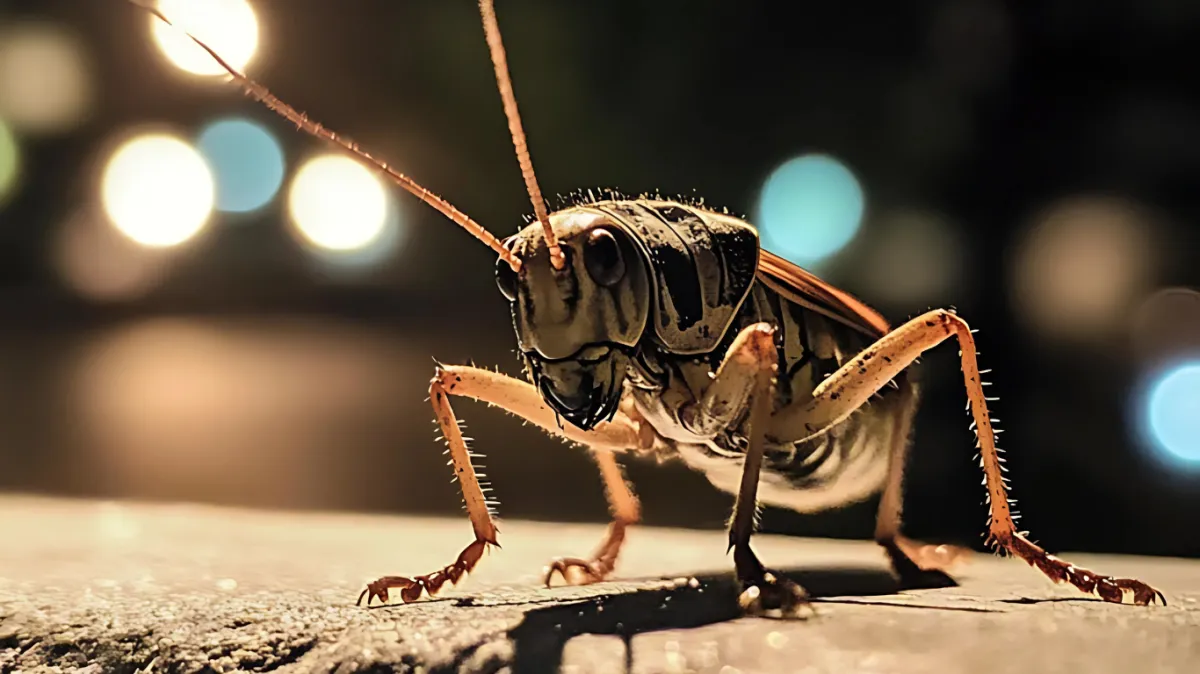
Midsummer Night's Scheme: Thwarting Nighttime Pests in St. Catharines
Understanding Nocturnal Pests
Nocturnal pests are those that prefer the darkness of night to carry out their activities. Here in St. Catharines, certain pests become more problematic as the sun goes down. Below are some of the most common nocturnal pests, along with details about their habits and habitats:
Mosquitoes:
Active Period: Most active during dusk and dawn, but can continue activity throughout the night.
Breeding Sites: Prefer stagnant water sources for laying their eggs, such as ponds, marshes, and any accumulated water in yard containers.
Health Risks: Known carriers of diseases like West Nile Virus and Zika Virus, posing significant health threats.
Raccoons and Rodents:
Feeding Habits: Scavenge for food from dusk till dawn, often invading garbage bins, compost heaps, and pet food stations.
Nesting Areas: Find shelter in dark, secluded areas such as attics, crawl spaces, and under decks or sheds.
Property Damage: Capable of causing extensive damage as they chew through materials and displace structural components to create nesting sites.
Moths and Beetles:
Attraction to Light: Drawn to artificial lights, leading them to swarm around fixtures outside homes and businesses.
Feeding Patterns: While some moths are harmless, others can be pests in gardens, feeding on foliage and flowering plants during the night.
Preventive Measures: Use of yellow light bulbs or sodium vapor lamps can reduce attraction and minimize swarming.
Petty Pest Control’s Nighttime Defense Strategies
Effectively managing nocturnal pests requires specialized strategies that cater to the unique behaviors of these creatures. Here’s how Petty Pest Control tailors its approach to ensure your evenings in St. Catharines are undisturbed by unwanted visitors:
Customized Lighting Solutions:
Reduce Attraction: Implement lighting options such as LED yellow bulbs or sodium vapor lights that are less enticing to night-active insects, thereby reducing their presence around living areas.
Motion-Activated Lights: Install motion-sensor lighting to deter animals like raccoons and rodents, using sudden illumination to scare them away from your property.
Barrier and Exclusion Techniques:
Secure Trash Bins: Equip trash receptacles with raccoon-proof lids and locks to prevent nocturnal wildlife from scavenging and causing messes.
Window and Door Screens: Enhance your home's defenses with sturdy, well-fitted screens to block entry of flying nocturnal insects like moths and mosquitoes.
Natural Repellents and Treatments:
Plant-Based Repellents: Deploy natural deterrents such as citronella torches, peppermint oil, or garlic sprays around the perimeter of your outdoor spaces to keep pests at bay in an environmentally friendly manner.
Biological Control: Encourage the habitation of bats in your area by installing bat houses; bats are excellent natural predators of insects, significantly reducing mosquito and moth populations.
Professional Assessments and Monitoring:
Regular Inspections: Our pest control specialists conduct comprehensive nighttime inspections to identify and address any conditions conducive to pest invasions.
Monitoring Systems: Utilize advanced tracking and monitoring equipment to keep tabs on the movements and activities of larger nocturnal animals, allowing for timely interventions.
Precautions and Preventive Measures
Effective management of nocturnal pests involves not only reactive strategies but also proactive precautions. Here’s how you can bolster your home’s defenses against night-active pests in St. Catharines:
Landscape Management:
Trim Vegetation: Regularly prune bushes and trees to maintain a distance from your house, minimizing natural shelters for rodents and other pests.
Proper Drainage: Design your landscaping to promote adequate drainage. Avoid water accumulation, which is a prime breeding ground for mosquitoes.
Home Fortification:
Seal Entry Points: Conduct routine inspections to identify and seal any cracks, crevices, and other potential pest entry points in your home's structure.
Chimney and Vent Covers: Fit chimneys and exterior vents with secure covers to block access to larger nocturnal creatures like raccoons and squirrels.
Education and Community Awareness:
Workshops: Petty Pest Control organizes educational workshops that provide homeowners with the skills to recognize early signs of pest problems and apply effective DIY preventative techniques.
Community Efforts: Collaborate with local neighborhood associations to implement community-wide pest management strategies, enhancing the effectiveness of individual efforts through coordinated action.
Advanced Detection Technologies
Utilizing modern technology is key in managing nocturnal pests effectively. Petty Pest Control incorporates advanced detection technologies to enhance our monitoring and control strategies. Here's how these tools play a crucial role:
Infrared Cameras:
Heat Signature Detection: These cameras detect heat emitted by warm-blooded animals like raccoons and rodents, allowing for accurate identification of active pest hotspots.
Night Vision: Infrared technology works in complete darkness, making it ideal for monitoring nocturnal creatures that are active during the night.
Long-Term Monitoring: Continuous data collection helps track pest activity trends over time, providing insights into the effectiveness of current pest control measures.
Motion Sensors:
Immediate Alerts: Motion sensors trigger an alert when movement is detected, enabling quick response to potential pest invasions.
Area Coverage: Strategically placed sensors can cover large areas, ensuring that all potential entry points and pathways are monitored.
Integration with Other Systems: These sensors can be integrated with alarms, lights, or cameras to initiate deterrent measures immediately upon pest detection.
Ultrasonic Devices:
Sound Waves: Emit high-frequency sound waves that are discomforting to pests but are inaudible to humans and most pets, providing a non-intrusive pest control method.
Area Specific Control: These devices are ideal for targeted areas where traditional repellents cannot be used, such as near food storage or preparation areas.
For more information on how to protect your home from nocturnal pests or to schedule a consultation, visit our website or contact Petty Pest Control directly. Let us help you take back your summer nights with effective, sustainable pest control solutions.